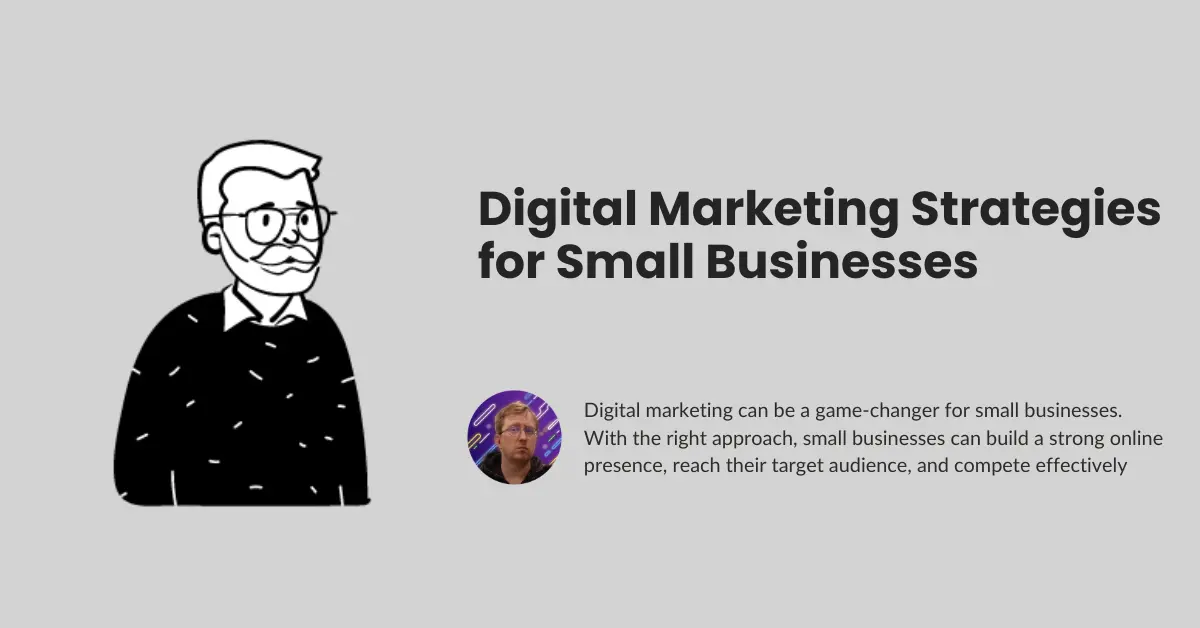
Digital marketing can be a game-changer for small businesses. With the right approach, small businesses can build a strong online presence, reach their target audience, and compete effectively—even with limited budgets. This article will explore essential digital marketing strategies that can help small businesses succeed.
Developing a Clear Brand Identity and Unique Selling Proposition
Creating a unique brand identity is one of the first steps toward building a strong digital marketing strategy. Brand identity includes everything that shapes how people see and experience your business, like your logo, colors, mission, and personality. A well-defined brand identity makes your business memorable and builds trust with customers.
Another important element is a Unique Selling Proposition (USP). This is what makes your business stand out from competitors. A strong USP explains why customers should choose your products or services. For example, if you offer sustainable, eco-friendly products, that can be your USP. Developing a brand identity and a clear USP gives your marketing a strong foundation, helping you communicate your unique value to customers.
Building a Strong Online Presence
Website Strategy
Your website is often the first place potential customers learn about your business. For small businesses, a professional, user-friendly website is essential. The website should be visually appealing and easy to navigate. A clear, clean design helps visitors find what they’re looking for quickly. Additionally, the website must be mobile-responsive since many people use their phones to browse. A mobile-friendly design ensures that your website looks good and works well on any device.
To guide visitors toward taking action, such as making a purchase or contacting your business, place clear calls-to-action (CTAs) on each page. For example, buttons labeled “Contact Us” or “Buy Now” help direct visitors to their next step. Basic search engine optimization (SEO) can help people find your website more easily. This includes adding keywords in titles, descriptions, and headers on your website. Finally, ensure that your site loads quickly. A fast-loading website improves the user experience and reduces the chance that visitors will leave before it fully loads.
Social Media Strategy
Social media platforms offer a great way for small businesses to reach and engage with their target audience. To make the most of social media, start by choosing the platforms that best match your audience and business goals. If you sell products with strong visual appeal, platforms like Instagram and Pinterest may be ideal. Facebook, with its wide range of users, works well for most businesses, while LinkedIn is suitable for B2B businesses.
Maintaining a consistent presence on social media is crucial. Plan your posts in advance to create a balanced mix of content, such as educational posts, promotional updates, and customer stories. Engaging with your audience is also important. Reply to comments, answer questions, and show appreciation for positive feedback. This level of interaction can help build a loyal community around your brand.
⚡ The Shocking Truth About Fear in Advertising – Uncover the secrets of fear-driven marketing. Explore real-life examples, ethical dilemmas, and the impact of fear in advertising.
Search Engine Optimization (SEO)
SEO, or search engine optimization, helps your website show up when people search online for products or services you offer. For small businesses, local SEO can be particularly beneficial, as it focuses on ranking higher in local searches. Start by creating a Google My Business profile to make your business appear in local search results and Google Maps. Also, list your business in relevant local directories.
Conducting keyword research is key to SEO. By identifying words and phrases your customers search for, you can use these terms on your website to increase its chances of showing up in search results. Once you know your keywords, integrate them naturally into your content, product descriptions, and service pages. Link-building, or getting other websites to link back to your website, also helps improve SEO. This can be done through guest posting on related sites, forming partnerships with local businesses, or participating in local events.
Online Reviews and Reputation Management
For small businesses, positive online reviews can be incredibly powerful. Encouraging satisfied customers to leave reviews on sites like Google and Yelp can improve your reputation and influence new customers. Positive reviews help build trust and give potential customers confidence in your products or services. When you receive reviews, take time to respond, whether they are positive or negative. Acknowledging feedback shows that you value your customers and are committed to improving their experience.
Leveraging Content Marketing to Build Authority
Content marketing is an effective way to share valuable information, build trust, and attract potential customers. Blogging is one approach that allows you to provide helpful information related to your industry or products. Regularly posting well-written, informative articles can help you rank higher in search results, bring more traffic to your website, and establish your business as an authority.
Video content is also valuable, especially for visually demonstrating your products or sharing customer stories. Platforms like YouTube and social media are ideal for posting videos. Repurposing content across different platforms can maximize reach. For example, you could turn a blog post into a short video or use tips from a guide as social media posts.
Implementing Email Marketing for Customer Retention
Email marketing is a powerful tool for staying in touch with your customers and keeping them engaged with your brand. Building an email list is the first step. One way to do this is by offering something valuable in return for signing up, like a discount or a free guide. As your email list grows, you can begin to segment it based on customer interests, purchase history, or other characteristics. This way, you can send more personalized and relevant emails to each group.
Several types of email campaigns are useful for small businesses, including welcome series, product updates, and re-engagement campaigns. To make your emails effective, focus on personalizing the content and optimizing elements like the subject line and send times. Track metrics such as open and click-through rates to see what’s working and improve over time.
Utilizing Paid Advertising on a Budget
Google Ads
Google Ads is a great way to reach potential customers through targeted search and display ads. For small businesses, focusing on high-intent, location-based keywords can be cost-effective. This means targeting searches like “pizza shop near me” or “local bakery.” Additionally, Google’s ad extensions allow you to add more information to your ads, like your phone number, location, and extra links, which can make them more effective.
Remarketing is another option that allows you to show ads to people who have visited your website but haven’t taken action. These ads help remind them of your business and encourage them to return. Setting daily budgets and bid caps in Google Ads is a smart way to control spending while still reaching potential customers.
Social Media Advertising
Social media ads can help increase brand awareness and drive traffic to your website. Each platform, like Facebook, Instagram, or LinkedIn, offers different targeting options to reach your ideal audience. You can target users by age, interests, location, and other factors. Testing different ad types, like carousel ads, story ads, and video ads, allows you to see which formats work best.
Retargeting ads on social media are also helpful for reminding people of your business. For example, if someone visits your website but doesn’t make a purchase, you can show them an ad on Facebook or Instagram, encouraging them to come back. Starting with small budgets, testing different ad designs and copy, and making adjustments based on results can help you make the most of social media advertising.
Measuring Success: Analytics and Key Performance Indicators (KPIs)
Measuring the success of your digital marketing efforts is important to see what’s working and where you need to improve. For small businesses, tracking metrics like website traffic, conversion rate, customer acquisition cost, and return on ad spend (ROAS) can provide valuable insights. These metrics help you understand if your efforts are reaching the right people and leading to sales.
Many free tools can help you track performance. Google Analytics is useful for monitoring website traffic, while Google Search Console shows how your site appears in search results. Social media platforms also offer built-in insights. Reviewing this data regularly and adjusting your strategies based on it can help you achieve better results over time.
Tips for Staying Updated in the Evolving Digital Landscape
The world of digital marketing is always changing, with new trends, platform updates, and algorithm changes. Staying informed helps you adapt and take advantage of new opportunities. Resources like marketing blogs, online courses, and industry webinars are valuable for learning about these changes. Networking with other small business owners or joining online communities can also provide support, fresh ideas, and shared experiences.
Conclusion
By focusing on these digital marketing strategies, small businesses can create a strong online presence and attract more customers. Building a clear brand identity, investing in SEO and social media, creating valuable content, using email marketing, and taking advantage of paid advertising options are all key steps. Starting small, staying consistent, and learning as you go are important. Digital marketing requires time and effort, but with a strategic approach, it can lead to meaningful growth and lasting customer relationships.
